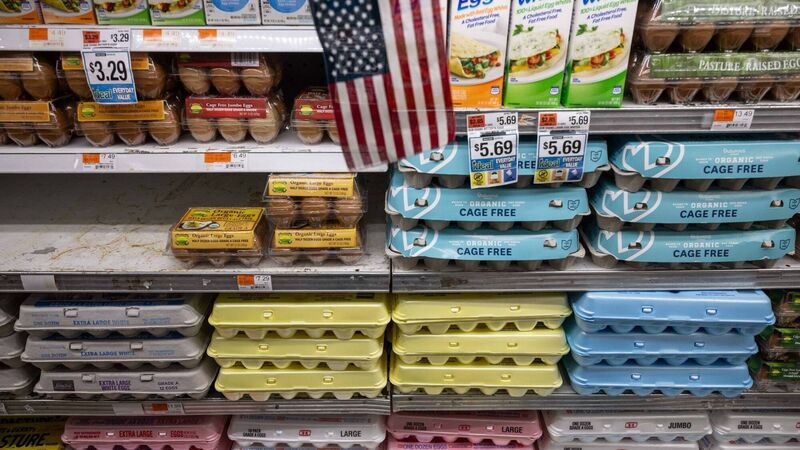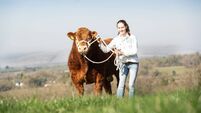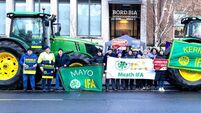Stephen Cadogan: Could Ireland become gripped by US egg-shortage conspiracies?

With bird flu killing millions of egg-laying chickens, prices surged more than 55% from a year before. Picture: Yuki Iwamura/Bloomberg
Could a US-style panic develop in Ireland after one of new Agriculture Minister Martin Heydon's first important tasks was to emphasise the need for poultry biosecurity after bird flu struck a small captive bird flock in Co Derry in Northern Ireland?
In the US, the price of eggs is expected to jump by a further 20% this year, due to a national egg shortage after 23.2 million birds had to be killed in December 2024 alone, after contracting the bird flu virus.













